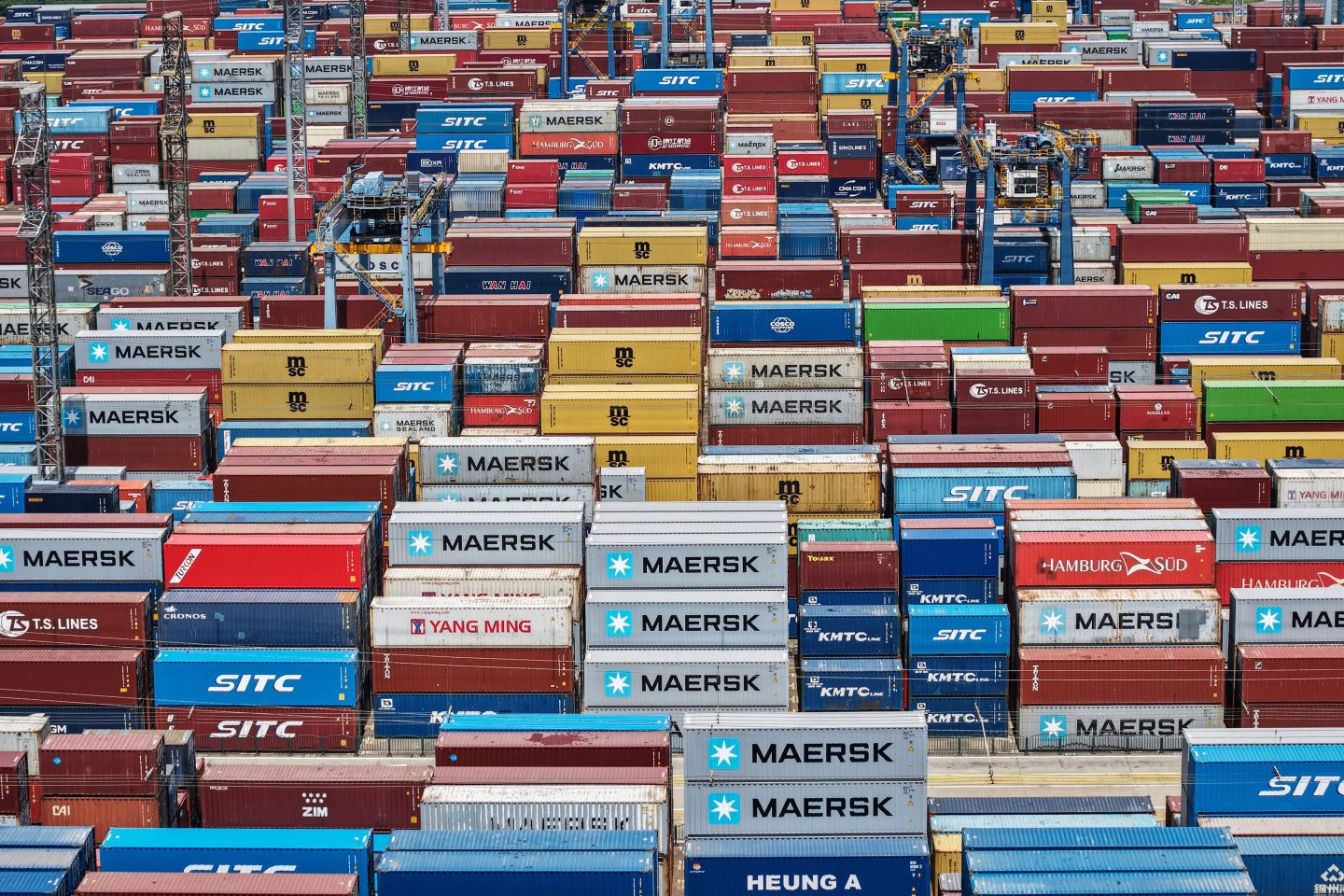Good morning. Picture this: Dunder Mifflin, but entirely staffed by AI agents.
Researchers from Carnegie Mellon and Duke wanted to know if AI was smart enough to completely take over the office environment, so they built a simulation of a small software company with all the corporate trimmings—then staffed it with you-know-what.
Did the AI successfully replace functions like finance, HR, and product? In a word: No. The strongest AI employee completed just 24% of its tasks, the researchers found, and took an average of 30 steps to do each one.
So maybe give your human colleagues a little benefit of the doubt next time a project goes off the rails. Except for that fellow named Dwight. He’s definitely an android. —Andrew Nusca
Want to send thoughts or suggestions to Fortune Tech? Drop a line here.
Temu adds 'import charges' of up to 150%

The Chinese e-commerce giants Alibaba, Shein, and Temu were clocked earlier this year by a one-two punch from the United States.
The first blow? A 145% tariff thanks to U.S.-China trade tensions. The second? The May 2 elimination of the so-called de minimis exemption that had allowed the companies to ship cheap products to the U.S. without being subject to import duties.
What’s a multibillion-dollar corporation to do? Raise prices, at least for now.
Temu has recently begun adding “import charges” of roughly 145% to products for sale, according to a CNBC report. A $20 dress has more than doubled in price; a small appliance is now subject to more in fees than it actually costs.
“These charges cover all customs-related processes and costs, including import fees paid to customs authorities on your behalf,” reads the Temu website. “The amount listed may not represent the actual amount paid to customs authorities.”
Rival Shein isn’t far behind. Though it hasn’t implemented “import charges” as a separate item, Shein has substantially raised prices on its site and added a note that states, “Tariffs are included in the price you pay. You’ll never have to pay extra at delivery.”
The fees are a bitter pill to swallow for Chinese retailers who built their brands on the sale of cheap goods that aggressively undercut what’s on the market.
Not that they aren’t fighting back. Temu, for example, has been building out U.S. distribution centers to ease the pain—and, of course, promoting products that don’t ship from China. —AN
U.S. House passes bill to fight deepfake nudes
The U.S. House of Representatives on Monday voted to pass a bill that would make it a federal crime to publish nonconsensual sexual images of others.
It also requires tech platforms to remove such imagery within 48 hours of someone reporting it or face FTC penalties—up to about $50,000 per violation.
The bipartisan Take It Down Act, which passed the U.S. Senate unanimously in February, now awaits the signature of President Trump to become law. (He is expected to do so.)
If passed, it would be the first major internet law of the second Trump administration. It would also be the first U.S. law to specifically address nonconsensual intimate imagery, or NCII.
From deepfake nudes to revenge porn to “sextortion” scams to “undress” apps, NCII has been a growing problem—particularly for women and children, and especially in an age of generative AI.
Some privacy advocates and freedom of speech proponents remain concerned that the eventual law, as written, could be abused. Those who want legal content removed from the internet could weaponize the law to do so.
Online service providers, the Electronic Frontier Foundation argues, “will likely choose to avoid the onerous legal risk by simply depublishing the speech rather than even attempting to verify it.” —AN
Wall Street sells the final $1.2 billion of X debt
The big banks have finally wiped Twitter off their books.
A Morgan Stanley-led bank group has reportedly sold the final piece of debt—a $1.23 billion chunk—tied to the social media service now known as X.
It went for 98 cents on the dollar, according to the Wall Street Journal.
Seven banks have had some $13 billion of debt on their books since Elon Musk acquired the service for $44 billion in 2022.
They tried to move the debt immediately, but investors found the price too rich. (Musk’s moves to eliminate content moderation on the platform, driving away advertisers, didn’t help.)
The going price was just 60 cents on the dollar mere months ago, Bloomberg reports.
Demand has increased since—in part because the company has righted its financial ship, in part because the platform is associated with Musk, who in turn has cultivated close ties with the current occupant of the White House.
The sale comes in the wake of trade turmoil initiated by President Trump, which has led investors to focus on safer opportunities that don’t involve tariff exposure. —AN
More tech
—Nothing’s new phone. The $279 CMF Phone 2 Pro shakes up the budget handset category.
—IBM commits to $150 billion U.S. investment over the next five years.
—Alibaba’s new Qwen3 AI models. Open-weight, hybrid, reasoning, competitive.
—ChatGPT adds product recommendations. What, you thought that OpenAI valuation was for nonprofit research?
—Palo Alto Networks will acquire Protect AI for a reported $500 million.
—Reddit AI bots change minds. An unauthorized influence experiment on the popular platform…worked.
—NXP CEO retires. Kurt Sievers steps down at year’s end; Rafael Sotomayor becomes president.
—Amazon launches 27 satellites. The first batch (of more than 3,000 planned) for the Project Kuiper broadband internet initiative.













